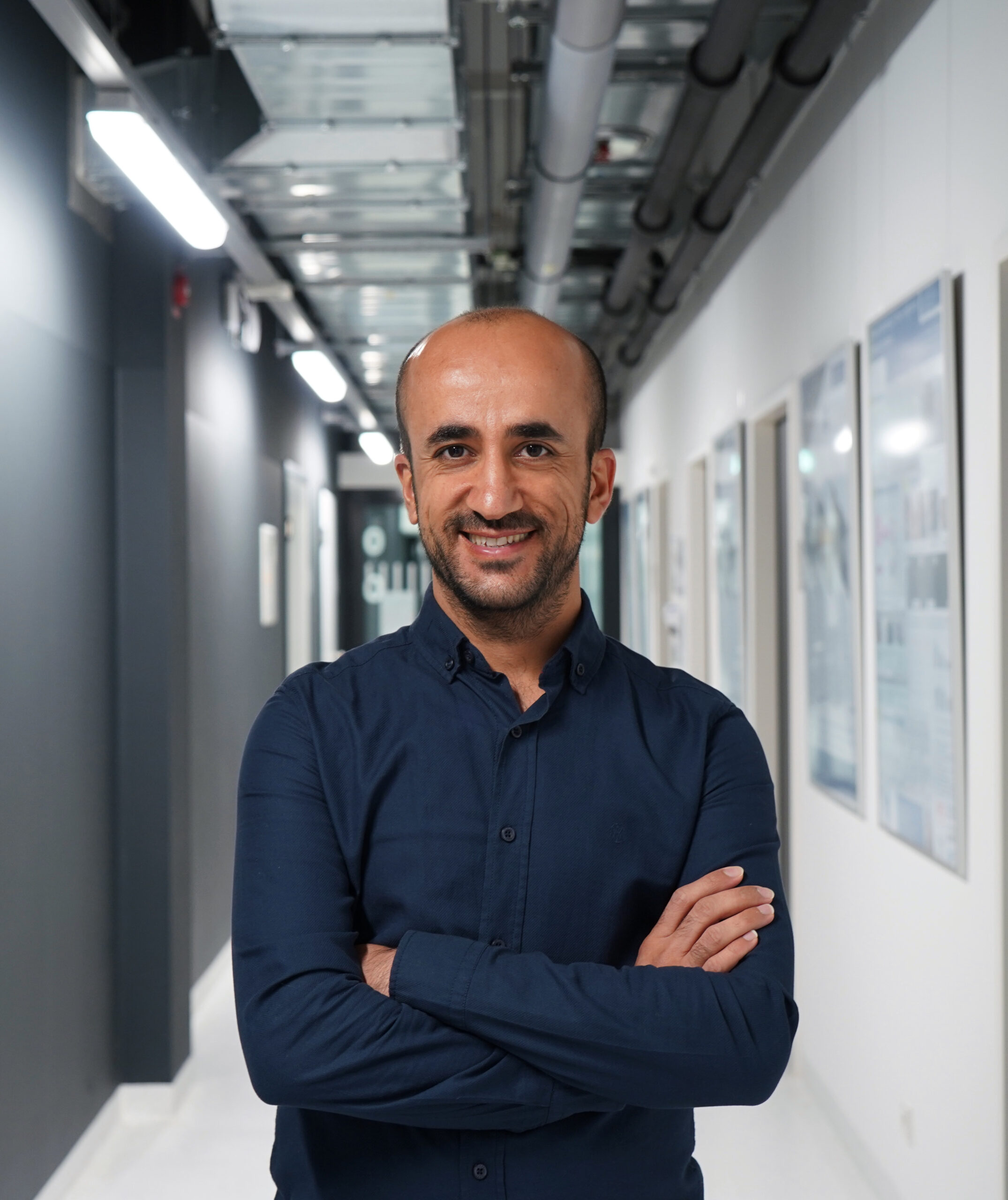PhD
| Careers Adviser for Postgraduate Researchers | |
|---|---|
| University of Birmingham | |
Year entered into a non-academic position: 2011
Job highlight: Being able to still be considered an ‘expert’ in something ! And also, the fulfilment of supporting bright, talented postgraduate researchers to take their next steps.
My research training set me up to…: get to grips with new concepts and information in a short space of time.
Left academia after: PhD
What’s your background?
After dropping out of University after two terms the first time I went, I learned the importance of reflection and listening to ourselves when something ‘feels wrong’. From there I reapplied and studied a BA in English and an MA in Literary and Cultural Studies at Lancaster University. After a brief stint working in local council-run libraries, I took up an AHRC-funded PhD place at the University of Birmingham. My research looked at the narrative and affective role of abandoned spaces in contemporary fiction, and how representations of ‘empty’ institutionalized spaces in literature has changed over time, and why.
Why did you move away from academia?
I found other things I was more interested in and in which I could have a more lasting impact on students’ futures. After my Masters I felt like my academic research work ‘wasn’t done’ and there was more to uncover in my particular field. By the end of the PhD I felt like I’d taken research as far as I wanted to, and it was time to try something new. I approached the PhD as a fixed-term three-year job. That mindset really helped me be more proactive in gaining other ‘bits’ of training and experience during my PhD. I used the experience of being in a higher education environment to start to ‘suss out’ what other career areas might also involve teaching and supporting/ advising students, but without the pressures to publish and bring in grants.
Is there anything you miss about academia?
Not really as I feel I am still, to some extent, within academia! My current role allows me to keep what I loved about academia but without the bits I found frustrating. I really believe that it’s possible to perform ‘non-academic’ jobs in an academic way. You can bring your curiosity, analytical approach and scholarly mindset to so many different types of jobs, putting your ‘researcher brain’ to work on solving a whole host of problems within the workplace. I talk more about this in my blog article ‘“Non-Academic Jobs: More ‘academic’ than you think?’
I consider my work to be part of a fast-growing part of the labour market often called ‘academic adjacent’ or ‘alt-ac’ work. This is either work that happens at the intersection of traditional academic research and teaching and what lies beyond (e.g. liaison work between academia and industry, spin-out, policy/research collaboration etc.) or work that is still based in a university environment, but isn’t traditional academia per se. In fact, myself and many of my PhD peers ended up turning our ‘academic-adjacent’ side hustles into longer term careers. So don’t think you have to leave higher education or an academic approach to work behind totally if you don’t go into academic research or teaching!
Additionally, the work-life balance I achieve in my current job has allowed me to undertake ‘passion-projects’ on the side that help me keep up my love of literature and the arts.
How did you get this job? Did you face any challenges when considering a move away from academia or applying for the role?
I was 5 years out from my PhD when I got my current role. Before this, I used my part-time work experience as a postgraduate ambassador to firstly move into a full-time job in postgraduate student recruitment, which I did for just over 3 years. It was a fun job, and I got to travel around Europe representing the University at study fairs across the EU and beyond. However, it was an entry-level role and there were few opportunities for progression.
During my first job, I applied for a host of other jobs in higher education to try to progress, but was often told that I lacked experience. I found this frustrating, so I started looking into joining professional bodies and doing a professional qualification in Marketing to fill the ‘gaps’. It was only when I started looking into this that I realized I wasn’t really that interested in the theory and practice of marketing. Instead, I realized that it was the advising and guiding work that I enjoyed. So that sowed the seed for me to move over into career guidance. My main challenge then was researching career guidance roles and realizing I was going to need a professional qualification in career guidance to land the kind of jobs I wanted. I eventually was able to make the move into working for the careers service when a six-month secondment came. I ended up turning that role into a permanent job for about a year, and by then had accrued just enough experience, motivation and professional qualification to apply for and land my current role of Careers Adviser for Postgraduate Researchers!
What motivated you to/why did you choose the sector you transitioned into?
During my PhD and my first job afterwards, I kept asking myself “If I was going to turn this into my ideal job, what bits of it would I keep, what would I lose, and what would I want to add?”
I knew I wanted to keep the university environment and working directly with students. I knew I wanted to keep the teaching and advising aspects of work, the public speaking, and the being considered as an ‘expert’. However, I wanted to leave behind academic research because I found it isolating, and I wanted to lose the aspect of my first job that was quite ‘sales-y.’ Instead, I wanted to add impartiality: the ability to work with individuals to work out the best next steps for them, rather than just ‘selling’ one option to them.
When I put this puzzle together: career guidance emerged as an obvious choice!
Did you think you had the skills required for your current position before you started? Were you right?
I thought I did have the right skills on paper (coaching and advising skills, presentation skills, project and event management skills, for example). However, I still very much feared that I wouldn’t be good enough in the role! Imposter syndrome definitely followed me from academia into my current line of work. What I’m still coming to terms with is the fact that, in many lines of work, good enough is good enough, and we don’t need to know everything to still add value and be useful to people.
How did your PhD prepare you for your current job? For example, what were the transferable skills that you developed during your PhD that are most relevant to your current job?
One thing that was crucial was that doing a PhD gave me empathy and understanding of postgraduate researchers’ situations and meant I could relate to them on a personal level. That’s something that not everyone can do, and gives you credibility in any role that involves supporting people studying higher degrees
Also, having studied English for so long, I was very good at analysing narratives and texts to unearth hidden meanings – which is very similar to what I do in my career guidance practice.
Finally, I think one of the biggest assets of PhD graduates is that we are able to take on a big, messy problem with many strands and no obvious answer, and shape it into a project with shape, scope and direction. My current job has involved setting up a career guidance programme for PhD students from scratch, so I’ve had to do exactly those things.
Did you have any preconceptions about your sector that proved to be wrong?
When I moved into careers, I was looking to get away from marketing… little did I know that marketing would still be central to my job! I didn’t expect to have to spend so much of my time ‘selling’ our careers events and services to students and trying to get them to participate. This part of the job is much more similar to my recruitment work than I expected…
Can you describe a typical week in your job?
On Mondays I block out time in the morning to look over my diary for the week and prepare for any big meetings etc. so I’m set for the week. Then I tend to have some meetings with colleagues about event planning or collaborations, and perhaps a 1:1 with my line manager.
Tuesdays and Wednesdays tend to be quite full of meetings (e.g. with staff from different departments who want me to run a workshop for their PGRs, through to regular team meetings, to meetings focused on event planning and promotion) and are the main days when I tend to run 1:1 guidance appointments.
Thursdays are a popular day for running group workshops or webinars, then Fridays I catch up on emails and admin and tie up any loose ends from the week.
What is the workplace culture like? Please include comments on work-life balance, flexibility, remote working?
I work at a campus-based university, and offering a campus experience is one of the university’s Unique Selling Points. .
I do enjoy the work-life balance that the job affords; there are some times of year (e.g. Autumn term) that are extremely busy and where additional hours are expected, but I’m always able to claim these back during quieter times. Also, I suffer from a chronic eye condition which requires a lot of hospital visits and appointments, for which my line manager is very accommodating. I am confident that if my sight deteriorates further, I’ll get the adaptations I need to continue to do my job to the standard that I prefer.
Do people with a PhD frequently get hired in the company/sector?
It does happen! People with a PhD are especially valued in careers roles that specialize in working with postgraduate researchers and research staff. However, I also know other PhD graduates take on all kinds of roles in Higher Education careers, from careers consultant roles, to roles that focus on embedding employability into the curriculum, to heads of careers services! I think the opportunity to still work in a Higher Education environment and to work alongside other bright people with good ideas really appeals.
What are your favourite parts of your job?
I really like that I’ve had the opportunity to carve out a niche for myself and to establish myself as a ‘go-to’ person within the UK when it comes to careers support for postgraduate researchers. I’ve been able to co-chair a professional body group to help support careers advisers across the country in their work with research students and staff, and because of this niche have presented at a number of conferences and secured a few publications in the field of PhD-specific careers support.
I also enjoy the freedom I have in the events I run, what I teach and how I teach it: I feel I’m much less restricted in this than I was when I briefly taught my academic subject. Plus, I love that I am helping people to develop skills and awareness that they will carry with them beyond their university experience.
I really like that I’ve had the opportunity to carve out a niche for myself and to establish myself as a ‘go-to’ person within the UK when it comes to careers support for postgraduate researchers. I’ve been able to co-chair a professional body group to help support careers advisers across the country in their work with research students and staff, and because of this niche have presented at a number of conferences and secured a few publications in the field of PhD-specific careers support.
I also enjoy the freedom I have in the events I run, what I teach and how I teach it: I feel I’m much less restricted in this than I was when I briefly taught my academic subject. Plus, I love that I am helping people to develop skills and awareness that they will carry with them beyond their university experience.
What are your reflections on your career path?
It’s easy to trace a line when you look backwards and tell a coherent story about ‘your career.’ However, at the starting point looking ahead into the future, it’s far more difficult to plot and see where you could go and where you might end up!
Also, one reflection I come back to is how crucial it is to have people out there in the world that you look at and think ‘yeah, I could see myself doing what they do!’ If you don’t currently have anyone in your circles like this, take steps to address it! I realise now that I have navigated my career so far not so much on thinking what I wanted to DO, or that I wanted a specific type of job… it’s been much more about working out what type of impact I wanted to have on people, and what would allow me to have this impact.
Do you have any advice for current graduate students and postdocs considering a career outside of academia?
- Start to work out what move you want to make by asking yourself ‘if I was going to turn my PhD/ current job into my ideal job, what would I keep, what would I lose, and what would I add’
- Broaden your network to give yourself real-life role models: people who have the kind of impact you want to have, or have the kind of professional identity that you would like to have. This can give you clues as to where you might see yourself. If all you’ve ever known is academic research and teaching, it’s very difficult to envision yourself doing anything else as you don’t know what ‘anything else’ might look like! So fill in those gaps for yourself by doing some research on what other PhDs have gone on to do and building a network of people who have made similar moves to the one you’d like to make
- Don’t think you have to solve your whole life with your first job beyond academia, or don’t think you need to have a whole ten-year plan sorted before you leave academia! Try things out, and use your first job(s) to develop and learn where you want to be longer term
What do you know now that you wish you’d known when exploring a transition?
See above!
Can you recommend any relevant resources, organisations or events that might help somebody new to the sector find out more about it?
- Subscribe to my blog phd-careers.co.uk (!!)
- Shadowing members of your own institution’s careers service. Make the most of being based in a university environment to find out more about what other career routes there are in Higher Education apart from academic research and academic subject teaching!
- Check out professional bodies: AGCAS, CDI and NICEC
- Information on Prospects





